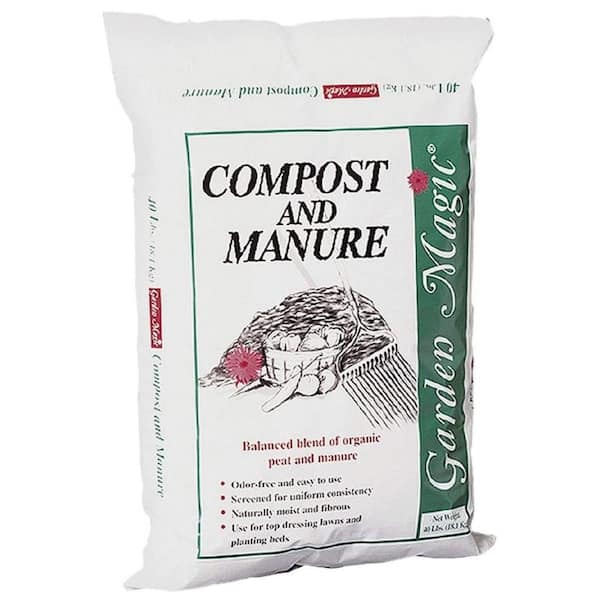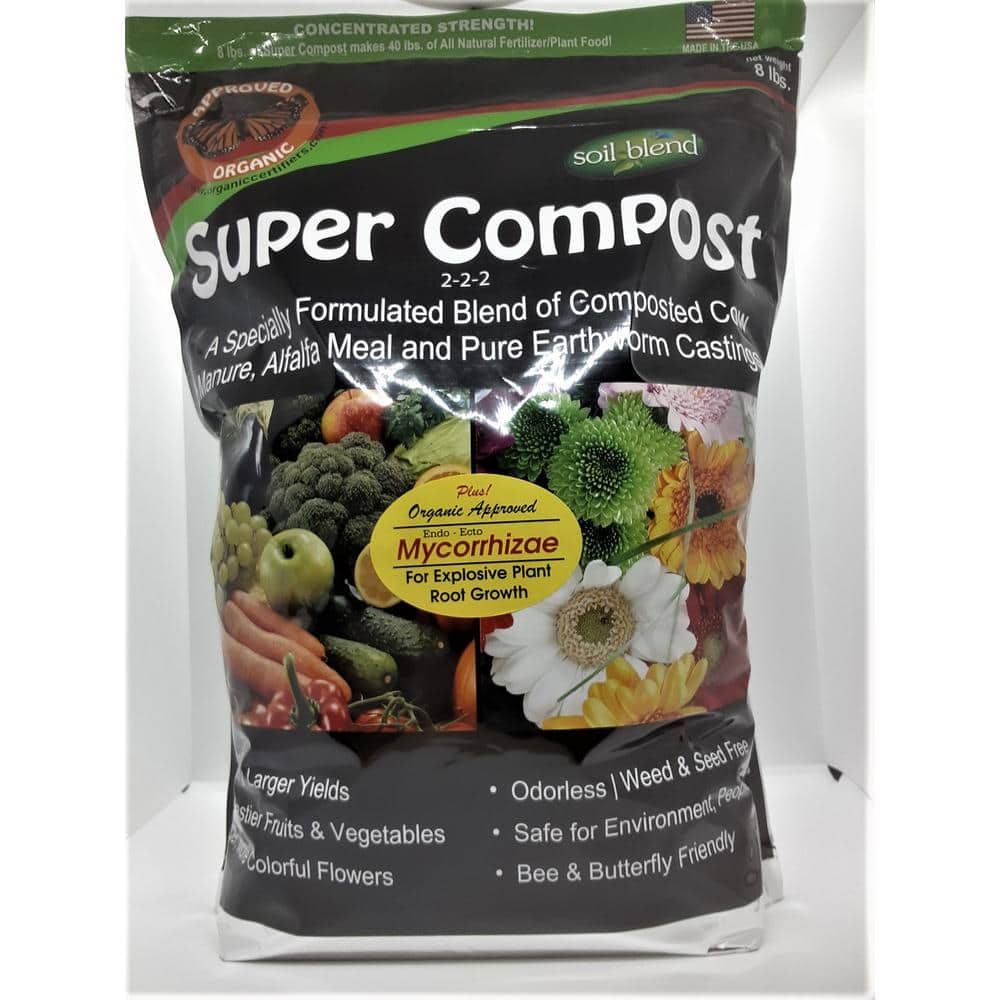The Ultimate Guide To Choosing The Best Compost For Your Vegetable Garden
The Ultimate Guide to Choosing the Best Compost for Your Vegetable Garden
Compost is a gardener's best friend. It's a natural way to improve the soil in your vegetable garden, making it more fertile and productive. It also helps to improve the drainage and water retention of your soil, making it easier for your plants to get the water and nutrients they need.
If you're not sure where to start when it comes to choosing compost for your vegetable garden, don't worry. We're here to help. In this guide, we'll discuss the different types of compost available, as well as the factors you need to consider when choosing the best compost for your needs.
What is compost?
Compost is a mixture of organic materials that have been decomposed by microorganisms. These materials can include food scraps, yard waste, and other plant materials. As the organic materials decompose, they release nutrients that are essential for plant growth.
Compost is a valuable addition to any vegetable garden. It can help to improve the soil's fertility, drainage, and water retention. It can also help to suppress weeds and pests.
What are the different types of compost?
There are two main types of compost:
- Organic compost is made from organic materials, such as food scraps, yard waste, and other plant materials. It is the most common type of compost and is available at most garden centers.
- Inorganic compost is made from inorganic materials, such as wood chips, sand, and perlite. It is less common than organic compost, but it can be beneficial for certain types of plants.
How to choose the best compost for your vegetable garden
When choosing compost for your vegetable garden, there are a few factors you need to consider:
- The type of plants you are growing. Some plants, such as tomatoes and peppers, need a compost that is high in nitrogen. Other plants, such as broccoli and cauliflower, need a compost that is high in phosphorus.
- The condition of your soil. If your soil is sandy, you will need a compost that helps to improve drainage. If your soil is clayey, you will need a compost that helps to improve water retention.
- Your budget. Compost can range in price from a few dollars to over $10 per bag. If you are on a budget, you may want to consider making your own compost.
How to use compost in your vegetable garden
Once you have chosen the best compost for your vegetable garden, you can start using it. Here are a few tips:
- Add compost to the soil before planting. This will help to give your plants a good start.
- Top-dress your plants with compost. This will help to keep your plants healthy and productive.
- Use compost as a mulch. This will help to suppress weeds and retain moisture.
Conclusion
Compost is a valuable addition to any vegetable garden. It can help to improve the soil's fertility, drainage, and water retention. It can also help to suppress weeds and pests.
If you are looking for a way to improve the health of your vegetable garden, compost is a great option. By following the tips in this guide, you can choose the best compost for your needs and use it to help your plants thrive.
Are you looking for the best compost for your vegetable garden? If so, you've come to the right place! Garden Wiki is a comprehensive resource that provides all the information you need to choose the right compost for your needs.
On Garden Wiki, you'll find reviews of the top composts on the market, as well as tips on how to make your own compost at home. You'll also learn about the different types of compost and how they can benefit your vegetable garden.
Whether you're a beginner or a seasoned gardener, Garden Wiki has something for everyone. So what are you waiting for? Visit Garden Wiki today and learn everything you need to know about the best compost for your vegetable garden!
FAQ of best compost for vegetable garden
- What is the best compost for vegetable gardens?
The best compost for vegetable gardens is a well-balanced mix of green and brown materials. Green materials, such as vegetable peelings, fruit waste, and grass clippings, are high in nitrogen. Brown materials, such as dead leaves, straw, and cardboard, are high in carbon. The ideal ratio of green to brown materials is 30:1.
- What are some good materials to compost for vegetable gardens?
In addition to green and brown materials, there are a number of other things that you can compost for your vegetable garden. These include:
- Coffee grounds
- Eggshells
- Tea bags
- Wood ash
- Sawdust
- Manure
- Sewage sludge
- Food scraps
It is important to note that not all materials are created equal. Some materials, such as meat, dairy, and cooked food, can attract pests and rodents. It is best to avoid composting these materials.
- How do I make compost for my vegetable garden?
There are a number of ways to make compost for your vegetable garden. The most common method is to create a compost pile. To do this, you will need to gather a mixture of green and brown materials and layer them in a pile. The pile should be moist but not wet. You will need to turn the pile every few weeks to aerate it.
Another way to make compost is to use a compost bin. Compost bins are available in a variety of sizes and styles. They can be made from a variety of materials, such as wood, plastic, and metal. Compost bins make it easy to compost in small spaces.
- How long does it take to make compost?
The time it takes to make compost depends on a number of factors, such as the size of the pile, the type of materials you are composting, and the climate. In general, it takes about 3-6 months to make compost. However, it can take longer in colder climates.
- How do I use compost in my vegetable garden?
Compost can be used in a variety of ways in your vegetable garden. You can add it to the soil as a fertilizer, or you can use it to create a potting mix for your plants. Compost can also be used to mulch your plants. Mulching helps to keep the soil moist and cool, and it also helps to suppress weeds.
Image of best compost for vegetable garden
5 different images of "best compost for vegetable garden" from Pinterest:
- Black Kow Organic Compost and Manure
 This is a good option for vegetable gardens because it is high in nitrogen and phosphorus, which are essential nutrients for plant growth. It is also odor-free and easy to use.
This is a good option for vegetable gardens because it is high in nitrogen and phosphorus, which are essential nutrients for plant growth. It is also odor-free and easy to use. - Michigan Peat Garden Compost and Manure Blend
 This compost is made from a blend of peat moss, manure, and other organic materials. It is lightweight and easy to spread, and it helps to improve the drainage and aeration of soil.
This compost is made from a blend of peat moss, manure, and other organic materials. It is lightweight and easy to spread, and it helps to improve the drainage and aeration of soil. - Organic Brands Mushroom Compost
 Mushroom compost is a nutrient-rich compost that is made from the byproducts of mushroom farming. It is high in nitrogen, phosphorus, and potassium, and it can help to improve the overall health of your vegetable garden.
Mushroom compost is a nutrient-rich compost that is made from the byproducts of mushroom farming. It is high in nitrogen, phosphorus, and potassium, and it can help to improve the overall health of your vegetable garden. - Soil Blend Super Compost with Myco
 This compost is made from a blend of organic materials, including manure, leaves, and wood chips. It is enriched with mycorrhizal fungi, which help plants to absorb nutrients more efficiently.
This compost is made from a blend of organic materials, including manure, leaves, and wood chips. It is enriched with mycorrhizal fungi, which help plants to absorb nutrients more efficiently. - Vermicompost
 Vermicompost is made from the waste of worms. It is a nutrient-rich compost that is also high in beneficial bacteria and fungi. It is a good option for vegetable gardens because it is gentle on plants and does not burn them.
Vermicompost is made from the waste of worms. It is a nutrient-rich compost that is also high in beneficial bacteria and fungi. It is a good option for vegetable gardens because it is gentle on plants and does not burn them.
Post a Comment for "The Ultimate Guide To Choosing The Best Compost For Your Vegetable Garden"